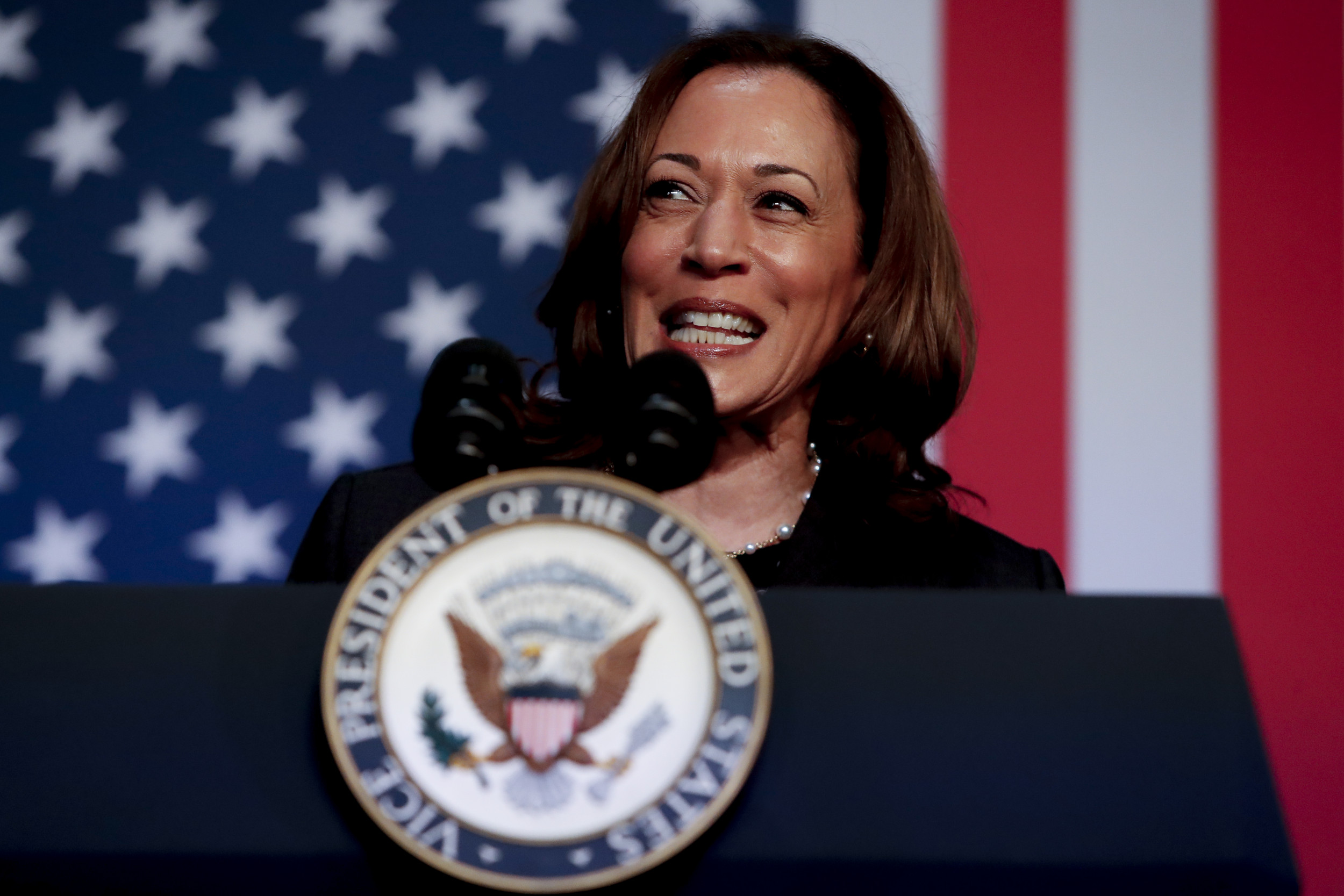It would be “insanity” for Democrats not to unite behind Vice President Kamala Harris as the party’s presidential nominee, according to presidential historian Allan Lichtman.
Known as the “Nostradamus” of U.S. presidential elections due to his impressive record of correctly predicting the outcome, Lichtman suggested that unity would be important to steer the Democratic Party to victory after President Joe Biden announced on Sunday he was not seeking reelection and endorsed Harris as his successor.
“If she’s not the Democratic consensus nominee then… not a whole lot would have to go wrong for the Democrats to lose,” Lichtman said in a video posted to his YouTube channel.
“It would be insanity for the Democrats to have a big party fight now, recreate the conditions of 2016 and conditions which over 120 years have always spelled defeat for the White House party,” he added.
Chris duMond/Getty Images
“It’s a crisis of their own making, but with a consensus behind Harris it’s still a crisis that is well salvageable for the Democratic party,” Lichtman also said.
Newsweek contacted Lichtman and the Biden campaign via email for comment outside of working hours.
Lichtman, a professor of history at the American University in Washington, D.C., is perhaps most famous for developing an election prediction model known as “The Keys to the White House.”
The model uses a set of 13 true/false statements, known as “keys,” which are designed to assess the political environment and predict the outcome of U.S. presidential elections. Each key corresponds to different aspects of the political landscape, such as the economy, foreign policy successes or failures, social unrest, scandal, and the incumbent administration’s performance.
The 13 keys, as set out by Lichtman in a 2012 article for Social Education, are as follows:
- Party mandate: After the midterm elections, the incumbent party holds more seats in the U.S. House of Representatives than after the previous midterm elections.
- No primary contest: There is no serious contest for the incumbent party nomination.
- Incumbent seeking re-election: The incumbent party candidate is the sitting president.
- No third party: There is no significant third party or independent campaign.
- Strong short-term economy: The economy is not in recession during the election campaign.
- Strong long-term economy: Real per capita economic growth during the term equals or exceeds mean growth during the previous two terms.
- Major policy change: The incumbent administration effects major changes in national policy.
- No social unrest: There is no sustained social unrest during the term.
- No scandal: The incumbent administration is untainted by major scandal.
- No foreign or military failure: The incumbent administration suffers no major failure in foreign or military affairs.
- Major foreign or military success: The incumbent administration achieves a major success in foreign or military affairs.
- Charismatic incumbent: The incumbent party candidate is charismatic or a national hero.
- Uncharismatic challenger: The challenging party candidate is not charismatic or a national hero.
If six or more of the above statements are false, the incumbent party is predicted to lose the election. If five or fewer are false, the incumbent party is on course to win.
The system aims to measure the stability and strength of the current administration rather than relying on traditional polling or subjective analysis.
Lichtman has successfully predicted the outcome of nine out of the past 10 presidential elections using the keys method, going back to 1984. In 2000, he said Vice President Al Gore would win against George W. Bush. Gore won the popular vote but Bush won the Electoral College vote 271-266.
Biden’s decision to drop out of the race came after weeks of mounting pressure, mounting from within the Democratic party in the wake of a poor debate performance and numerous public gaffes.
Do you have a story we should be covering? Do you have any questions about the 2024 Presidential Election? Contact LiveNews@newsweek.com
Uncommon Knowledge
Newsweek is committed to challenging conventional wisdom and finding connections in the search for common ground.
Newsweek is committed to challenging conventional wisdom and finding connections in the search for common ground.
